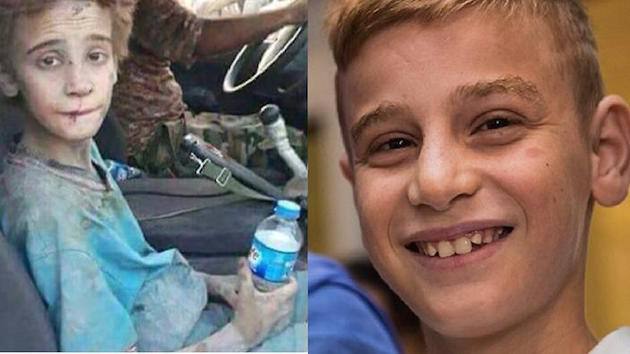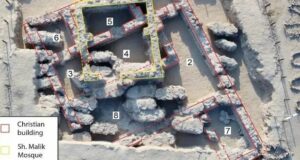While most former ISIS strongholds in Iraq and Syria have been liberated in the last 18 months, several thousand kidnapped women and children of the Yazidi minority group remain unaccounted for and are enslaved in neighboring Turkey.
The Yazidis are not Muslim, nor Arab. They are a Kurdish religious community whose ancient religion Yazidism is linked to Zoroastrianism and ancient Mesopotamian religions, however Yazidis form a distinct and independent religious community and have their own culture. Since ancient times they live primarily in the Nineveh Province of Iraq.
The sad news of the condition of their young women and children is a result of interviews with their families and rescue groups.
“We are finding many of our women, our girls, our kids in Turkey,” Hussein Al-Qaidi, director of the office of kidnapped and rescue affairs run by the Kurdistan Regional Government (KRG) Prime Minister’s office in the city of Duhok, said.
“What happens is most are given fake IDs or marriage certificates. Their names are changed to Muslim names, and they become part of another family. And then they are smuggled over the border from Syria.”

Twelve-year-old Imad Tammo, pictured just after his rescue, was only 8 when he was kidnapped by ISIS. He was recently rescued and reunited with his family in Canada where he was all smiles.
Data provided by the KRG prime minister’s office shows roughly half of the 6,417 taken captive by ISIS when they occupied the Sinjar area of Syria – the ancestral homeland of the Yazidis – remain unaccounted for. Among those rescued were 1,151 teen girls and women over the age of 15, 336 boys and men of the same age group, and 858 children under 15.
That leaves some 3,132 Yazidis still missing. And while Al-Qaidi anticipates many of those missing have been killed, he said a “significant number” are believed enslaved throughout Syria and Turkey.
Among those rescued was 21-year-old Shaza, who returned home from Ankara, Turkey on Jan. 9 – more than three years after being taken and forced into marriage as a “second wife” to an ISIS fighter.
Shaza was smuggled into Turkey last fall along a “secret way,” with family members of the ISIS husband who stayed behind to fight in Syria as Iraqi troops closed in.
For the next few months, Shaza said, she remained bound to an Ankara apartment as a slave, before being saved in a rescue operation involving smugglers and middle men.
“Thanks to God I am alive,” she told media outlets.
Jaqueline, now 10, was just seven when she was whisked from her village and transferred to what was then an ISIS stronghold of Tel Afar. She was then sold to the family of an ISIS leader, Waleed, and his wife, Zena.
The family moved to Syria in early 2017, and Jaqueline said she was then smuggled with their new “family” over the border into Turkey, where she spent another six months in Ankara. She recalls the family referring to her as “our daughter” when questioned at checkpoints by officials.
Jacqueline said she was forced to work long hours for the family, essentially functioning as a domestic servant. “They treated me very badly, making me clean for them all day, and all night, while the wife did nothing.”
But suddenly one day last July, Jacqueline said, she was informed she was “going home.” She was put on a plane to Baghdad, where one of her captive’s brothers had flown weeks earlier, where he was stopped by a member of the paramilitary group Popular Mobilization Forces (PMF). That led to some sort of deal that secured Jacqueline’s release.
Most rescue cases are coordinated and funded by Al-Qaidi’s office, who in turn works with Iraqi and Turkish security agencies to secure family reunifications. Al Qaidi declined to discuss the details of rescue operations, but emphasized the work from Turkey is “difficult but not impossible.”
A spokesperson for the Turkish Embassy in Baghdad says that Turkish authorities “have worked with Iraqi counterparts, especially with the Iraqi Ministry of Migration and Displacement, as well as Iraqi Border Authority, in a cooperative manner to ensure the safe return of refugees, including Yazidis.”
According to documents, the first Yazidi rescue from Turkish territory took place in December, 2016 – a 23-year-old woman named Watha. Since then, 15 other rescue operations have successfully been carried out all over Turkey – most recently on this spring. But al-Qaidi said he knows it will take many more rescues, particularly since most of those being held are “very young.”
For 8-year-old Medya, the terror appears in her dreams. The Yazidi girl, found to suffer from post-traumatic stress syndrome, is tormented by images of the bearded, black-clad ISIS soldiers who held her captive for three years and repeatedly raped her mother, Saran, in the room next door.
Medya would cry when she heard her mother’s screams. And even today, when the images become unbearable, Medya faints, sometimes several times a day, said Dr. Jan Kizilhan, a German doctor of Kurdish background who works with traumatized Yazidi women and children.
Medya and her mother, now reunited, are now in a camp with 8,000 refugees in Mam Rashan, two hours from the Sinjar region. Despite the proximity to their homeland, many refugees are afraid to return even though there is proof they are mother and daughter.
One of the challenges of cross-border rescues is to first prove a Yazidi is being held against their will. This often requires DNA proof.
Lazem, now six, was just three when he was bought by a woman to be an “ISIS son.” He was forced to convert to Islam, renamed “Abdullah,” issued a new identity card to match that of his ISIS family, and spirited away to Turkey.
But after his real father, Kassim, received credible information Lazem was in Turkey, a trip was coordinated for him to personally travel there, and provide a DNA sample.
Forty-five days later, on Sept. 9 last year, Lazem and his father were reunited. But because of technicalities, the two still remain in Turkey.
The trauma seems to still weigh on Lazem. In a Fox News interview with Lazem and his father, the boy rarely made eye contact, and spoke up only to ask when his mother and three brothers – all also taken by ISIS – are coming home. Because of the length of time he was gone, Lazem didn’t even recognize his father.
The boy had also forgotten his native language, the Kurdish dialect of Kurmani, and could speak only Turkmen and Turkish.
The chances of that reunification might depend on where his mother and brothers are being held. Yazidis captive in Turkey actually might stand a better chance of being returned home than those who are trapped with remaining ISIS forces in Iraq and Syria.
Enas, a cheerful eight-year-old girl, was found in Syria late last summer after the ISIS family that took her essentially sold back her freedom. The mission to get enough money to return her took months, but paid off. She was quietly moved out of Syria first to Turkey, then back home to Iraq.
The “buyback” rescue is very common. More often than not, the families of the missing are contacted or discover where their loved ones are being held, and work though Al-Qaidi’s office to help collect and deliver the money.
But, al-Qaidi lamented, that process and the defeat of ISIS has produced a sharp rise in the cost of ongoing rescues.
“There are many cases still in Turkey we know of, and we want them home,” he added. “We will continue this process until the last of our people is brought home.”
Medya, an eight-year-old Yazidi, is a survivor of ISIS occupation in Iraq
 Metro Voice News Celebrating Faith, Family & Community
Metro Voice News Celebrating Faith, Family & Community









